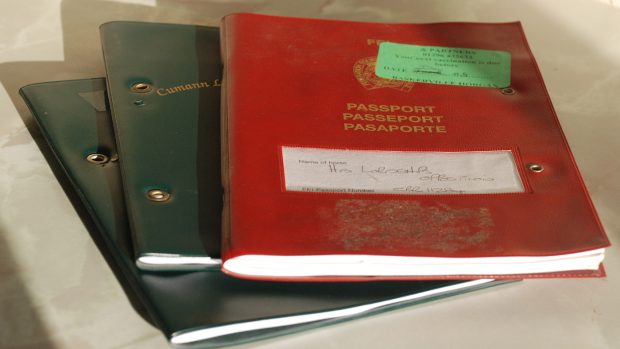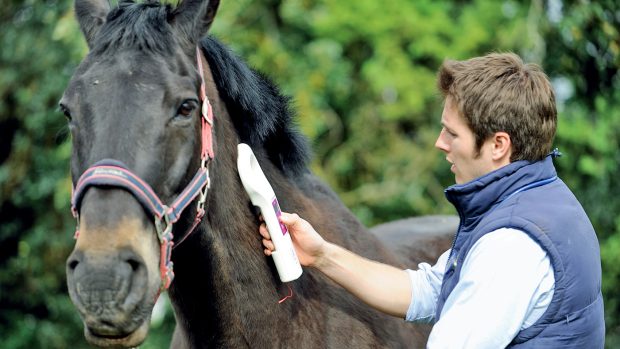The number of loose and fly-grazing horses is soaring in South Wales, resulting in 500 calls to police in January, compared with around 24 a month in 2011.
Huge numbers of animals are owned by travellers in the area – including one man whom a local welfare charity estimates owns as many as 2,700 coloured cobs.
Equine charities have taken in horses from the Cardiff and Bridgend areas this winter.
“The local authorities have a massive problem,” said Nic de Brauwere of the charity Redwings and chairman of the National Equine Welfare Council (NEWC).
“They approached Redwings for help training their officers in animal handling and that led to us removing around 150 horses from the area.
“We have had to beg places at NEWC member charities, placing them under tremendous pressure.”
Over past months in South Wales, horses have strayed on to the M4 at Pencoed and been released on to Woodland Trust and local authority owned land – including a school’s grounds.
And Redwings is caring for 23 ponies that were fly-grazing land near Cardiff airport.
Mr de Brauwere said the problem is exacerbated by the poor economic climate, as well as high feed and fuel costs.
“We are dealing with one or two owners who own hundreds of horses apiece,” he explained.
“That is not illegal, but if they have not planned for a rainy day, they cannot afford to look after such numbers and they could end up dumped.”
The only way to crack down on fly-grazing is to enforce the microchipping regulations, says Jenny McGregor of the Society for the Welfare of Horses and Ponies in St Maughans, Monmouthshire.
Large numbers of youngstock still have no microchips and, if they are dumped, it is impossible to prove who is responsible.
Since June 2009, it has been a European legal requirement that foals and newly passported horses are chipped – but there is little enforcement.
Equestrian groups petitioned the Welsh National Assembly last November about the issue.
An assembly spokesman said: “The petition is being considered. If we decide that microchipping laws do need to be enforced more rigorously, we will refer the matter to the [Welsh] Government.”
This news story was first published in the current issue of H&H (22 March 2012)




